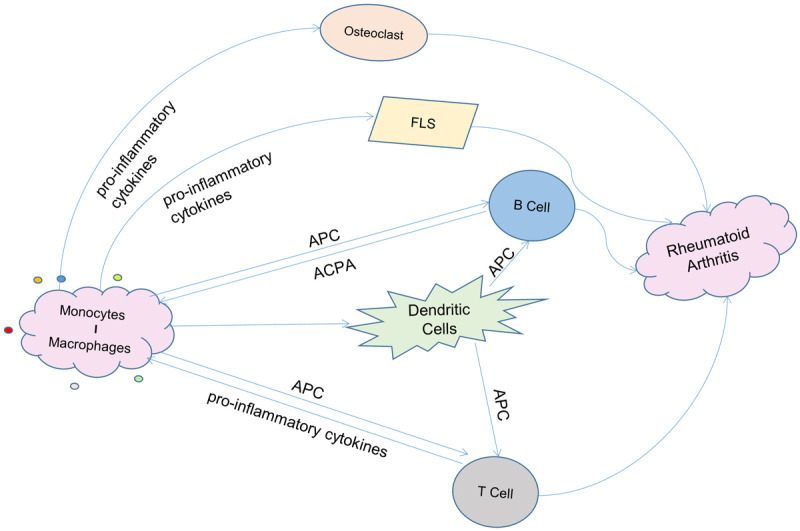Figure 2.

Mononuclear macrophages’ role in the pathogenesis of rheumatoid arthritis. Firstly, mononuclear macrophages can act as antigen presenting cells (APC) to promote the activation of T cells and B cells. B cells can produce autoantibodies such as anti-citrullinated protein antibodies (ACPA). The immune complex formed by the combination of autoantibodies produced by B cells and antigens or the pro-inflammatory factors produced by T cells can feedback on mononuclear macrophages, further amplifying the pro-inflammatory function of mononuclear macrophages. In addition, mononuclear macrophages also secrete inflammatory cytokines to recruit inflammatory cells, stimulate fibroblast-like synoviocytes (FLS) and induce osteoclast activation, promoting inflammatory response and bone destruction. The interaction of mononuclear macrophages, other immune cells and immune factors ultimately leads to the progression of rheumatoid arthritis.
